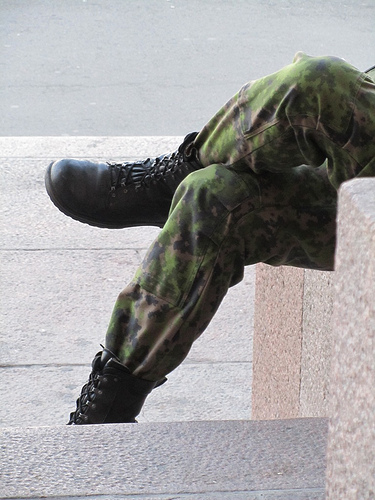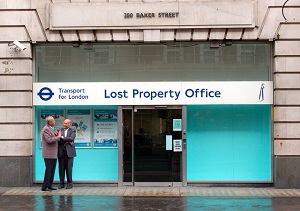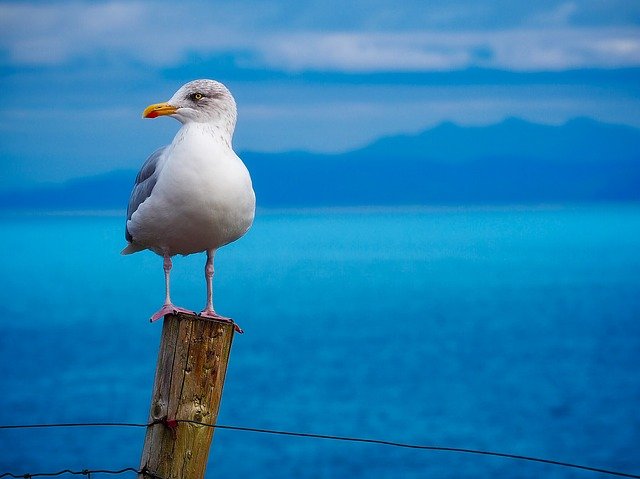You have no items in your cart. Want to get some nice things?
Go shopping
The first time it got me in its grip was on a Sunday afternoon in the tram. I’d got in at the Koningsplein. About three o’clock. I’d pushed my way through the crowds in the Leidsestraat. It was months since I’d been in a shopping street and the heavily laden fellow humans trudging next to me seemed like members of a different tribe.
[private]That morning I’d been to a coffee-concert given by a few of my ex-colleagues. I’d taken an early train. John was still asleep, I left a note for him and crept out of the house. It was a decorous concert. The quartet had played Haydn and Mozart, nothing by the modern masters that used to feature in our repertoire.
I decided to make my way back to the station on foot. Walking was good in my condition. As I crossed the canals I couldn’t get Eine kleine Nachtmusik out of my head. After less than a kilometre my steps became more cautious. Cramp stabbed at my lower back. A small group of people was standing at the tram stop. Within ten minutes I could be at the Central Station. I took my place in the waiting herd.
Unfortunately I was wrong. We waited and waited. The one small bench at the stop was occupied by a monster of a man. For a fraction of a second he glanced round. His look so fierce that I too remained standing, belly towards the tram tracks.
He was small of stature. Army boots, long-unwashed jeans, a khaki-coloured jumper. Hint of ginger hair, shaved to stubble. Hairs on his wrists and hands. Hands made to ball up into fists. Fists of squatters’ pamphlets, black-and-white posters on demonstrations. Bear paws.
I stroked my belly, rehearsed the gesture, reminded myself something was in there, a life. I’d pulled my skirt up high, it was of that elastic fabric they make tracksuits from. Ever since I found out, I’d been wearing gym shoes and clothes that clung to me like pyjamas. At night I felt it moving, scraping the wall of my abdomen. I pressed at the swelling, encountered something hard, something round.
Slowly the man turned his head, his eyes crept across the ground towards me. I quickly looked ahead at the tram tracks. Would he have noticed? Would he be imagining what it looked like, the naked creature in me? The tumbling in my belly, the amniotic fluid that sloshed with the steps I took? His body had been through a lot, to judge by the scar above his eye, a slab of skin gouged out there, the gash on his chin. Would it arouse jealousy, this two-person body in which life was preparing to separate itself?
His eyes burned. I turned towards the teenage girls. Like pole dancers they hung around the timetable. Bags in all sizes. Inside: the latest of the latest. Anything out of fashion went straight in the bin. At their age I wore big T-shirts, with wide sleeves and shoulder pads. Oversized and unisex. Twenty years ago the belly would have stayed invisible a long time. Now no one thought anything of naked skin, underwear stuck out from under tops, poked up over trouser-bands.
I stroked the belly that had robbed me of all lust and watched an old woman pull her shopping trolley over the tram tracks. Behind her a poster of a plunging neckline. In my bag was a book about a painter who observes his own aging process. Once a week his half-sister puts him in the bath. She washes his sex. He no longer cares what he’s wearing, lets his beard grow, never leaves the house. The past three months I too had visited the toilet many times a day. Short pees, minor ailments, taking a long time to tie my shoelaces. Often I felt like an animal. One that had stopped bothering to lick its fur.
A girl adjusted two, three patent leather belts. Another pulled a glitter tanga from her bag. When it came down to it, would the man’s thoughts turn to me or to those girls with their pallid faces, those calves? I was carrying life inside me. I was a symbol of fertility. Even though, from the moment I heard, something in me had had a sense that it was dying. That it had been lost. Something like youth, freedom, the possession of a body.
The man’s eyes had returned to the pavement. He yawned. Did he sleep last night? What was he after this Sunday afternoon in the city centre? Where would he get out? At the bar, the coffee shop? Would he produce a ticket from his trouser pocket, fold it carefully along the lines and stamp it? Drops of sweat shone on his neck. It wasn’t warm that day, a chill in the air, grey start to a Dutch autumn. Was that alcohol he was perspiring?
The nagging pain in my back got worse. I looked at my feet. Stand firmly on two legs, spread the weight. And then, at last, the rinkling of a tram. The man got up and pocketed a cigarette he’d just finished rolling. I stepped into the tram behind him. The stink of his unwashed clothes. Slap my hand to my mouth. It was chock-full. People didn’t stand up for me. I clung tightly to a pole, one step above him.
He looked out of the window. Cyclists, acacias in the wind, the first yellow leaf. In the bookshop was a poster with pale-blue lettering and roses, Special Topics in Calamity Physics, new novel by a brilliant young woman, I’d read in the paper. Calamity physics. The tram lurched. I tilted forwards, swayed. Khaki jumper, withered leaves in my nostrils. Humus. I grabbed a seat to steady me. Blinking my eyes. His fists landed in my stomach. I fell forwards, arms across my lower body. The boots stamped at my shins, kicked me over. An abandoned terrain. Impacts to the belly, contusions, bruises, then something burst open. Blood streamed through my fingers. I lay curled up between the tram tracks. An embryo rolled at my feet, naked newborn rat.
With a thumping heart I took one step backwards. Unruffled, the man stared straight ahead. I stroked the belly: we have survived this. His fingers flexed and then let go. And again. I took a breath.
One of my ex-colleagues had asked how it was going. ‘Taking a short time out,’ I’d said. There was no need to tell her that for two weeks I hadn’t touched my violin. She told me how they’d been forced to change the repertoire. String quartets were everywhere these days. Like a virus they travelled through the land of churches, castles and old council chambers. In such places there was no call for the repertoire of Berg or Schnittke, with the occasional exception, smuggled in between lighter, more digestible pieces. She’d resigned herself to that, she said, she had to eat.
I remembered rehearsing Schnittke in an empty school, the second string quartet. Fear of death and lust for life. Anger. No resignation, in spite of the orthodox church music he based it on. The piece demanded all my attention. I longed for that, for things that demanded all my attention.
At a bend the tram tilted to one side. People screamed, grabbed hold of shoulders, poles, seats. The man stood on steady legs, captain of his body. I wouldn’t have a chance if he hurled me to the floor of the tram.
‘The Dam, Dam Square.’ He squeezed towards the exit, shoved the door flaps open and jumped down, into the crowd. On the steps up to the supermarket vagrants sat with drink and dogs. To their left was an Irish pub, further on a coffee shop. Here he did business, amid tourists and hucksters.
Suddenly he was right in front of me, on the other side of the window, fifty centimetres lower. Hands on hips. His green eyes nailed me to the tram floor. She-creature in steel cage. He grinned, I stared back. Slowly the tram jolted into motion. The next hour and a half, the whole way home, I kept looking over my shoulder.
Since then I’m no longer safe.
Take Sunday. I cycle onto the Van Brienenoord Bridge, going flat out to make it up the slope. A truck skids across the concrete ramp between carriageway and cycle lane and knocks me down. Or last Thursday, late in the evening. I come out of the metro. On the far side of the square dark boys in white baseball caps are waiting for me. And yesterday evening, in the supermarket, a man with three fingers in plaster wants money from me. I put my basket down and run outside.
At night I dream I’m giving birth to animals, a chicken with all its feathers forces its way out of my belly, a blood-smeared calf tears me open, a sheep in winter coat slithers onto the kitchen floor, head first. Out of its belly come skinny lambs not strong enough to live. The bleating is deafening.
When darkness comes, I avoid the street. In Amsterdam I don’t take public transport any more. John says that there are demonstrably more accidents caused by kitchen steps than out of doors, that most assaults take place in the home, that in thirty years criminality has barely increased.
‘It’s just that more crimes get reported,’ he says.
I tell him I want a car of my own. ‘It’ll be a lot more convenient soon, with a child and all that stuff you have to carry with you.’
I turn round and walk upstairs. The baby room is almost ready. I’m holding a musical box that I bought today. It has frogs on it. For the baby, as it goes to sleep.[/private]
 Sanneke van Hassel studied theatre arts and cultural history. Her debut collection of short stories IJsregen (Ice Rain), published in 2005, was nominated for several literary awards. In 2006 she wrote about every day life in Sarajevo after a three-week stay: Pieces of Sarajevo. In 2007 she published her second collection of short stories titled Witte veder (White Feather). For this book she won the BNG Literary Award. She is currently working on a third collection, Ezels (Donkeys), which will be out in February 2012, and—together with Flemish writer Annelies Verbeke—on an anthology of short stories from all over the world: Naar de stad (To the City) for April 2012. She lives and works in Rotterdam.
Sanneke van Hassel studied theatre arts and cultural history. Her debut collection of short stories IJsregen (Ice Rain), published in 2005, was nominated for several literary awards. In 2006 she wrote about every day life in Sarajevo after a three-week stay: Pieces of Sarajevo. In 2007 she published her second collection of short stories titled Witte veder (White Feather). For this book she won the BNG Literary Award. She is currently working on a third collection, Ezels (Donkeys), which will be out in February 2012, and—together with Flemish writer Annelies Verbeke—on an anthology of short stories from all over the world: Naar de stad (To the City) for April 2012. She lives and works in Rotterdam.





